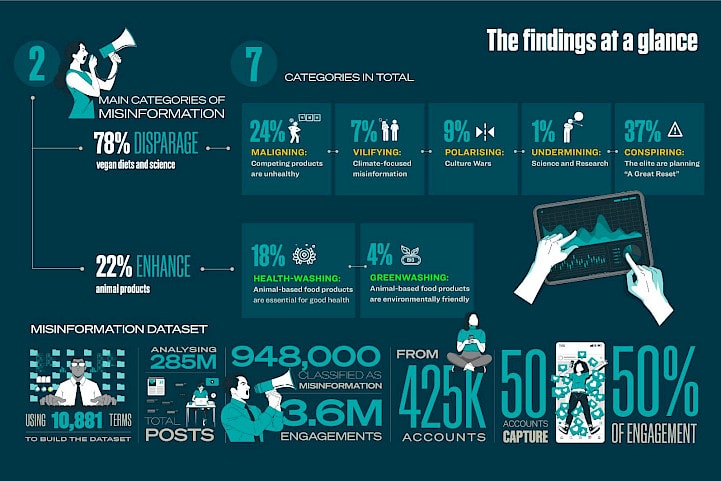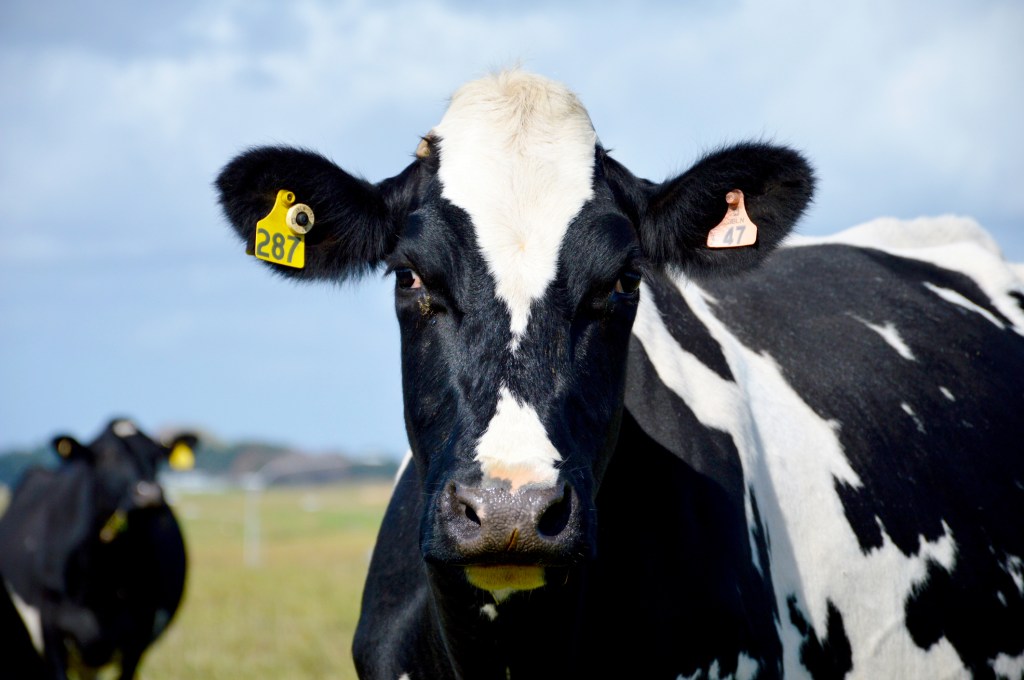An online misinformation campaign is aggressively undermining shifts to more sustainable foods such as alternative proteins in Europe and North America, according to a new report.
Research from data analysis firm Ripple Research commissioned by Changing Markets provides a comprehensive snapshot of what the non-profit describes as a “communications war” against scientific and policy concern over the environmental and health impacts of farming and changing diet patterns.
According to Changing Markets, the meat and dairy industries are ostensibly behind a significant percentage of the posts, which the non-profit said were found to regularly mix conspiracy theories with genuine government proposals in Europe and the US.
Ripple examined 285 million posts – mostly on Twitter/X but also on Reddit, blogs, and web forums – sent over a 14 month period up to July 2023. The firm said it identified nearly a million (948,000) posts that bent the truth to promote meat and dairy interests or undermine green alternatives and climate science.
Ripple said that 425,226 real and bot accounts formed the source of the content, with just 50,000 of the accounts driving 3.6 million likes, shares, and comments – half of that engagement was found to come from 50 accounts including famous right wing commentators and politicians.
The data analysis firm said 78% of these posts directly go on the attack, with the largest amount (37%) and those gaining the most engagement being heavily conspiratorial.

Among the accusations spread online were that the World Economic Forum (WEF), governments, and the rich are at war with farmers, planning mass starvation and cannibalism. Posts attacking well-known officials such as former New Zealand Prime Minister Jacinda Ardern, as well as institutions that support progressive food and climate policies, were also common.
Meanwhile, the study found that 24% of the posts alleged that alternative proteins such as plant-based milk and meat or cultivated meat lack nutrition and are “ultra-processed” “Frankenfood” that can cause serious disease and “turbo cancers”.
In addition, 7% of the posts had a climate focus, denying livestock are a problem or attacking alternative proteins as a threat to the environment, while 1% question scientific findings on climate, environment, and health benefits of reduced meat and dairy.
Changing Markets Foundation senior campaigner Maddy Haughton-Boakes said: “A large volume of conspiracy theories and culture war content about food and farming came from those on the political far-right rather than industry. But the two have a shared agenda, to downplay the science and weaken regulation. This ultimately maintains and even enhances the status quo of high meat and dairy consumption with low regulation.”
The research also refers to a spike of posts pointing to a controversial, non peer-reviewed UC Davis study that exaggerated the climate impacts of cultivated meat. The university received funding from the livestock industry to produce the research, according to a New York Times investigation.
Changing Markets noted that industries paying academics for support was not a new phenomenon, comparing the attacks on sustainable food sources to big oil misinformation.

The sentiments of the Ripple report were also echoed in a recent publication by The Freedom Food Alliance, which identifies additional misinformation tactics such as AI-driven social media manipulation and the strategic use of ‘corporate science’.
Changing Markets advised that governments with high levels of animal agriculture and meat and dairy consumption reaffirm their commitments to the Global Methane Pledge as well as look at evidence rather than reacting to polarised online misinformation to make positive choices for the environment.
To stay up-to-date on the latest industry headlines, sign up to Future Alternative’s enewsletter.
Posted on:


